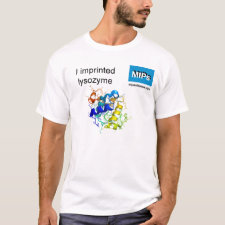
Authors: Kuwata T, Uchida A, Takano E, Kitayama Y, Takeuchi T
Article Title: Molecularly Imprinted Polymer Arrays as Synthetic Protein Chips Prepared by Transcription-type Molecular Imprinting by Use of Protein-Immobilized Dots as Stamps.
Publication date: 2015
Journal: Analytical Chemistry
Volume: 87
Issue: (23)
Page numbers: 11784-11791.
DOI: 10.1021/acs.analchem.5b03134
Abstract: Molecularly imprinted polymer (MIP) arrays were demonstrated for the recognition of proteins. They were prepared via transcription-type molecular imprinting where patterned dots composed of biotinylated nanoparticles were first immobilized on a glass substrate followed by the immobilization of versatile biotinylated proteins via avidin-biotin interactions, yielding a multiple protein-immobilized stamp as a mold that could be transcribed. MIPs were prepared between the stamp and a methacrylated glass substrate, and after the stamp was peeled off, MIP dots were able to be prepared on the methacrylated glass substrate according to the positions of the immobilized proteins on the stamp. We confirmed that the prepared MIP array showed the expected selective binding toward the corresponding template proteins by conducting competitive binding assays using the fluorescently labeled proteins as corresponding competitors. The binding behaviors were consistent with those obtained by a surface plasmon resonance sensing system. We believe that the proposed platform involving the easily handled nanoparticle-based protein stamps for the preparation of MIP arrays can provide a new type of pattern recognition-based protein chip, which can be adopted as a substitute for the use of conventional protein arrays in various research and industrial fields in the life sciences
Template and target information: proteins, cytochrome c, ribonuclease A, myoglobin, lysozyme



Join the Society for Molecular Imprinting

New items RSS feed
Sign-up for e-mail updates:
Choose between receiving an occasional newsletter or more frequent e-mail alerts.
Click here to go to the sign-up page.
Is your name elemental or peptidic? Enter your name and find out by clicking either of the buttons below!
Other products you may like:
 MIPdatabase
MIPdatabase









